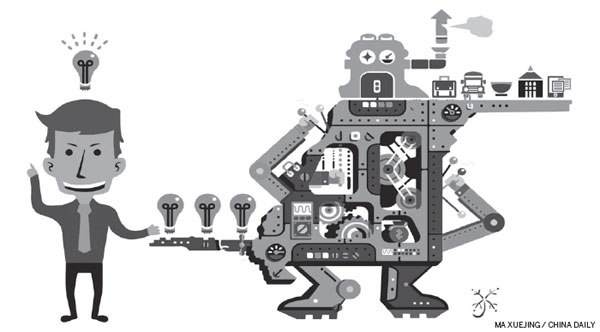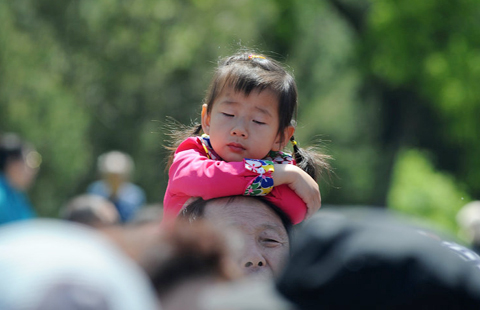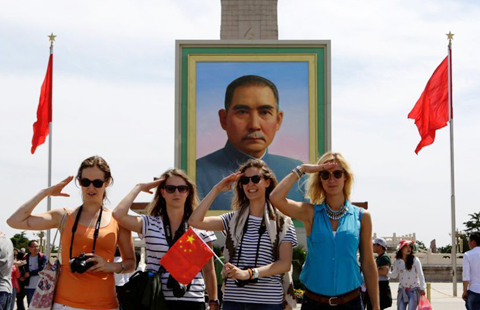The big trade-off in the world of labor
Updated: 2015-05-05 07:55
By Klaus F. Zimmermann(China Daily USA)
|
||||||||
Many people have long dreamed of becoming less chained to their workplace. Their vision is to become freer in managing their various tasks throughout the day. They especially want to better blend work and leisure. Others dream of no longer having to do monotonous, highly repetitive tasks.
If anyone needed a wake-up call about how much the world, as we know it, is changing, consider this: China betting its future on robots is certainly about the starkest signal imaginable. Part of the reason is that the size of China's labor force - long the source of existential worries in the Western world about assembly jobs being shipped to China - has peaked.
Labor market pressures are also felt elsewhere. In India, soon to be the world's most populous nation, more than 10 million new jobs are needed each year - just to find employment for new labor market entrants.
And all around the globe, university graduates - whether in "rich" countries or developing ones - find that their academic degree alone is no guarantee for getting a job.
Amid all this, robots don't threaten just assembly line jobs in the manufacturing sector; so-called service robots and computerization are also bound to take a toll on a range of occupations - from airline pilots and truck drivers to surgeons and cooks.
At present, there is much techno-hype (and much techno-phobia) when it comes to robots and automation. The best evidence we have points to negative employment effect on low-skilled and some semi-skilled workers.
However, Oxford University researchers forecast that, within 20 years, as many as half of all jobs could be affected. This includes quite a few job categories that are widely considered to require high skill levels.
Change is always unnerving. And while the precise shape of the future is uncertain, we know about some key shifts. Lifelong employment by one company and even formal employment contracts will become rarer than they were over the past three quarters of a century (at least in developed countries). More "informality" in work arrangements - long considered a phenomenon mostly affecting developing countries - is also taking hold in developed countries. It is, in fact, becoming a great leveler globally.
A future marked by less formal work relationships undoes a core feature that many people in rich countries have taken for granted. This trend also runs counter to what many people in developing economies are very much striving for. The net effect of this global trend is that, on balance, the risks associated with work are transferred more to individuals. Work will take on different forms from the ones many people, especially in the developed world as well as the formal sectors of developing countries, have been accustomed to.
As this new world of labor emerges, the proverbial 9 to 5 world is rapidly disappearing. That can actually be liberating for people who need more flexible schedules, including mothers who work. Over time, it should also lead to a de-clogging of our traffic arteries, as the twice daily madness of "rush hour" becomes less of an issue in the world's cities.
This shift to more flexible work patterns creates new challenges. Flexible work can be too unpredictable to reliably schedule other activities such as hard-to-get medical appointments, or to pick up additional hours working on another job elsewhere.
The author is director of Institute for the Study of Labor and editor in chief of IZA World of Labor.

(China Daily USA 05/05/2015 page12)

 Ten photos you don't wanna miss - May 5
Ten photos you don't wanna miss - May 5
 Met Gala 2015 highlights Chinese influence on fashion
Met Gala 2015 highlights Chinese influence on fashion
 Six reasons stopping Apple Watch from ticking in China
Six reasons stopping Apple Watch from ticking in China
 Historical photos of 56 nations in China (Part I)
Historical photos of 56 nations in China (Part I)
 World No.1 Ma wins first men's singles world championship
World No.1 Ma wins first men's singles world championship
 Ten photos you don't wanna miss during May Day holiday
Ten photos you don't wanna miss during May Day holiday
 The world in photos: April 27 - May 3
The world in photos: April 27 - May 3
 Fans dressed up to celebrate 'Star Wars Day' in Budapest
Fans dressed up to celebrate 'Star Wars Day' in Budapest
Most Viewed
Editor's Picks

|

|

|

|

|

|
Today's Top News
Xi will honor soldiers during Russia trip
Shanghai bans families of govt officials from owning firms
Chinese companies demonstrate presence at OTC
Most Americans believe US wealth distribution unfair: poll
Xi, Eric Chu
stress shared destiny
New leaders take reins at oil giants
China protests
US blacklisting in religious freedom
China becomes top source of immigrants to United States
US Weekly

|

|






